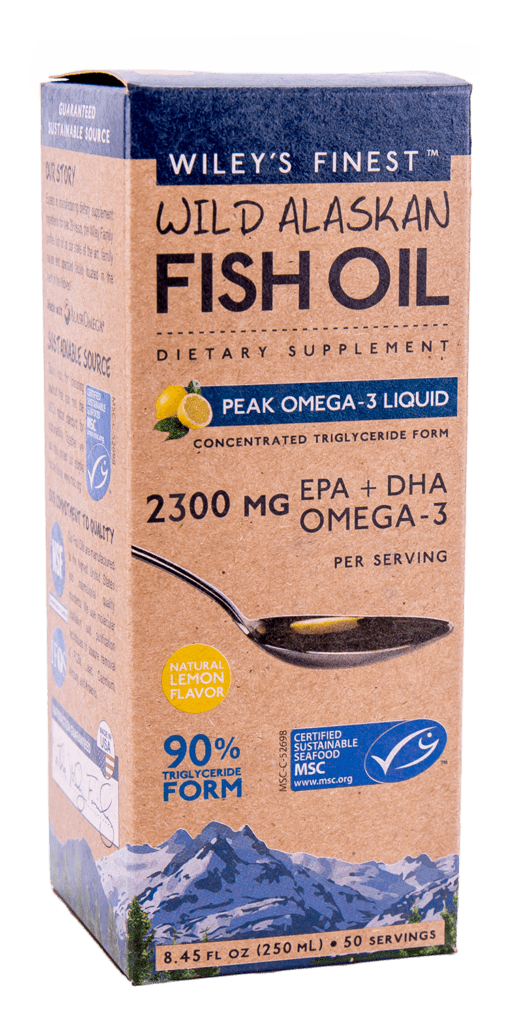

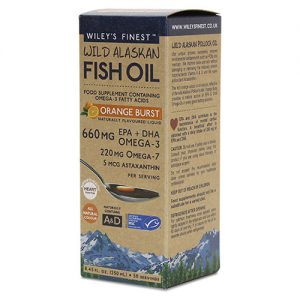
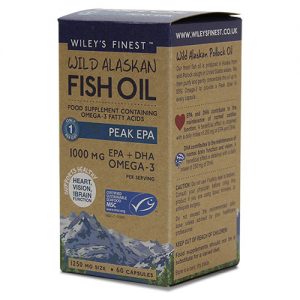
Peak Omega 3 2300mg 250ml Wiley’s Finest
£44.99 Original price was: £44.99.£35.99Current price is: £35.99.
Peak Omega 3
The body can’t produce omega-3 fatty acids on its own, so it’s important to include them in your diet. Foods high in omega-3s include fish, vegetable oils, nuts, flax seeds, and leafy vegetables.
What makes omega-3 fats so special? They play an important role in cell membranes throughout the body, affecting the function of cell receptors. They provide the starting point for making hormones that regulate blood clotting, contraction and relaxation of artery walls, and inflammation.
Is omega 3 fish oil
Omega-3 fatty acids are a type of unsaturated fatty acid that is essential for human health. The most well-known omega-3 fatty acids are eicosapentaenoic acid (EPA) and docosahexaenoic acid (DHA), which are found in fish oil. Omega-3 fatty acids are important for a number of bodily functions, including heart health, cognitive function, and inflammatory response.
They also bind to receptors in cells that regulate genetic function. Because of these effects, omega-3 fats have been shown to help prevent heart disease and stroke, and may also help control lupus, eczema, and rheumatoid arthritis. They may even play a protective role in cancer and other conditions.
Food with Omega 3
- Seafood especially cold water fish like salmon, mackerel, sardines, herring and tuna.
- Flaxseed, Chia seeds, walnuts and linseeds.
- Natural oils Canola oil, soyabean oil, Flaxseeds oil.
Omega 3 Benefits
Omega 3 rich of EPA, DHA
- lower triglycerides (a fat that enters your blood after a meal)
- It may improve blood circulation
- May prevent blood clots
- Control lower blood pressure
- It keep the rhythm of your heart steady.


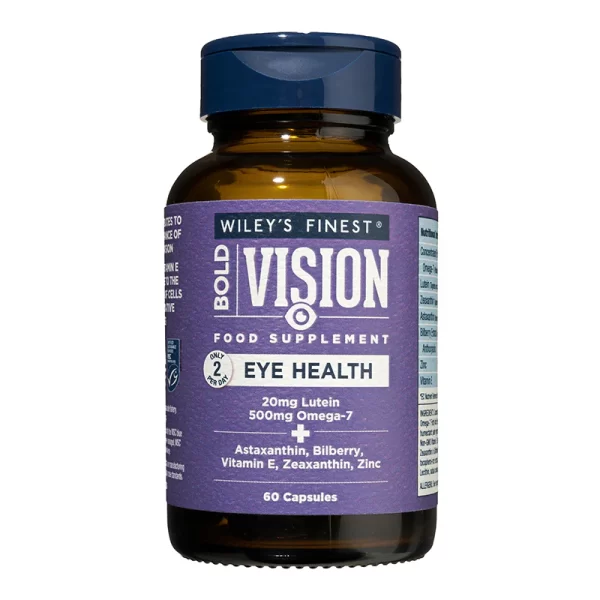
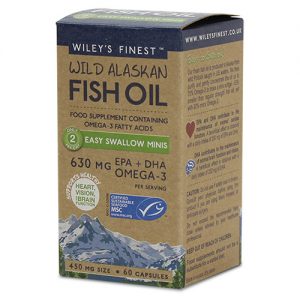
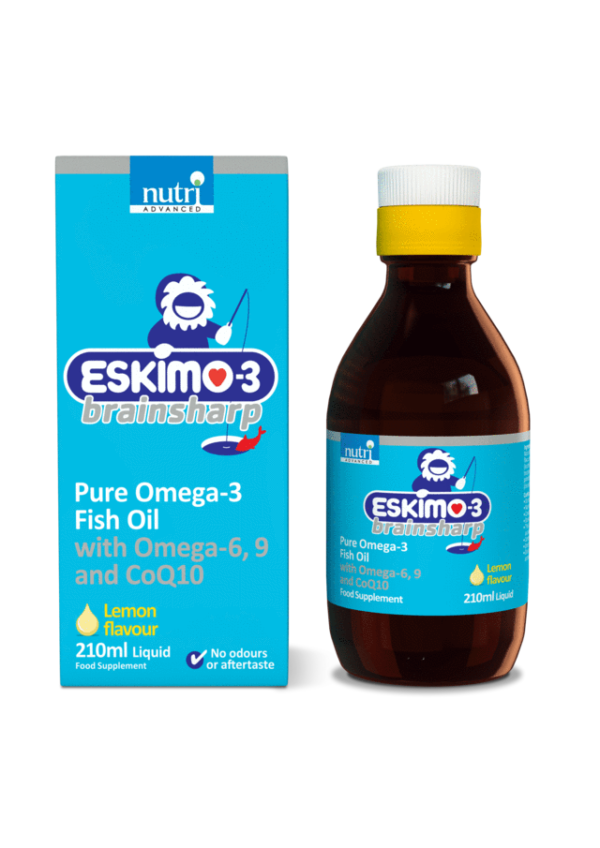
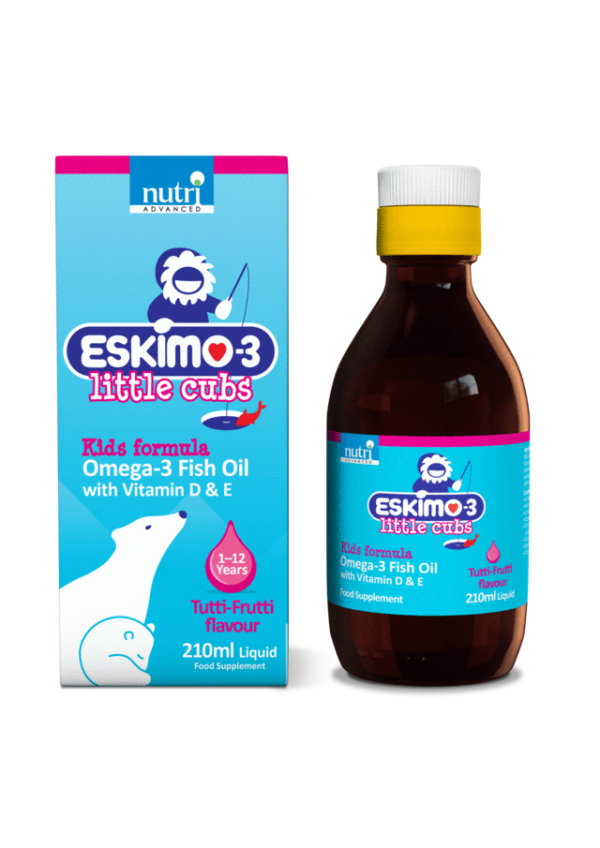
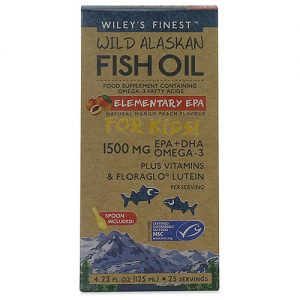


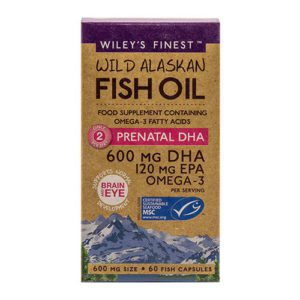




Reviews
There are no reviews yet.